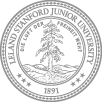OPACS
Background
Stanford's process for annual reporting and certification of compliance with the Faculty Policy on Conflict of Commitment and Interest (Research Policy Handbook 4.1) addresses two separate issues:
Conflicts of Commitment
These are conflicts relating to the allocation of time, attention and energy. When outside activities, including consulting, public service or pro bono work, interfere with a faculty member's primary commitment of time and intellectual energies to the education, research and scholarship endeavors of the University, a conflict of commitment can result.
Since requirements for field research and other reasons for absence from campus differ across the University, the definition of inappropriate, extended or frequent absences will vary by discipline. Any absences that would raise questions from fellow faculty, students or staff should be discussed within your department and may be appropriate to document on this annual form.
In addition to the limit set on the amount of outside consulting that a full-time faculty member may do, Stanford's policy also prohibits:
- direction of a program of research or scholarship at another institution that could be conducted appropriately at Stanford (i.e., outside PIship)
- significant management roles (those that involve supervision of the work of others and/or day-to-day responsibility for operating decisions) in a private business.
Conflicts of Interest
A conflict of interest occurs when there is a divergence between an individual's private interests and his or her professional obligations to the University such that an independent observer might reasonably question whether professional actions or decisions are determined by considerations of personal gain, financial or otherwise.
Conflicts of interest often arise at the convergence of two fundamental University missions: to push the boundaries of knowledge and to transfer that knowledge to the private sector for the benefit of the public. There may be, for example, significant personal financial incentives related to patenting and licensing an invention, or to outside consulting or other interests. Considerations of personal financial gain, however, must not influence decisions or actions related to one's University responsibilities. The potential that such incentives might harm research objectivity, or the protection of human subjects, students or others whose work depends on the direction of the individual, is enough to mandate that such conflicts be identified, and then managed, mitigated or eliminated.
Questions about conflict of interest focus on the intersection of your personal interests (including your own financial interests and those of your immediate family) and your Stanford activities.
Stated another way, Stanford University must protect itself and its faculty, staff and students from the following risks:
- compromise of scientific objectivity in the conduct of research
- compromise of appropriate controls in the conduct of research such that human participants could be harmed
- exploitation of students for private gain
- compromise of University priorities due to personal financial considerations
- unfair access by an outside party to information or technology stemming from University research
- use of University resources for private gain.
Keep in Mind
Having outside commitments and/or financial interests is NOT a violation of any rule. Such commitments and interests are generally regarded as inevitable. Stanford's policy and practices address the potential risks through individual disclosures and management.
This policy exists, and these disclosures are required, in order to protect the faculty member and the University. Appropriate disclosures can help to avoid serious difficulties for the individual and for Stanford, and are essential to public confidence in university research.
Among groups who can be particularly affected by conflicts of commitment and interest are:
- Students
and Postdoctoral Scholars
Disclosures are required whenever students or trainees are involved with work for, or supported by, an outside entity in which the faculty advisor or mentor has an interest. - Research
subjects
Stanford must take appropriate steps to guarantee objective evaluation of the results of clinical research and appropriate controls for the protection of human participants.
These reports are considered confidential and will be reviewed only by the cognizant school dean, the Dean of Research and designated individuals, who may include an associate dean, the department chair, senior administrative staff and University officials in Internal Audit and Office of the General Counsel. Disclosures that are identified by the review as financial conflicts of interest (FCOI) related to PHS (NIH)-funded research must be reported to the NIH and made available to the public.
Additional Information
Stanford University Policies
- University Code of Conduct
- Faculty
Policy on Conflict of Commitment and Interest
Approved by the Senate of the Academic Council in April 1994, and modified on December 2, 2004, this policy presents and discusses circumstances that can create real or perceived conflicts of commitment and conflicts of interest for faculty. The policy also establishes requirements for annual reporting and certification and financial disclosures. - Outside
Consulting Activities by Members of the Academic
Council
Defines and establishes limits on the amount of time that may be spent on outside consulting activities by Stanford faculty. - PHS
and NSF Requirements Regarding Financial
Disclosures and Agency Notifications
Explains the requirements of the Public Health Service, especially the National Institutes of Health (NIH), and the National Science Foundation (NSF) for disclosures associated with specific project proposals, and defines Stanford procedures for meeting those requirements.
Other Stanford Resources
- Resources related to Conflict of Interest(campus-wide)
- Best Practices for Faculty Start-Ups (campus-wide)
- Faculty Disclosure of Conflicts of Interest (School of Medicine)
Agency Requirements
- NIH Final Rule on Conflict of Interest, July 14, 1995
- NSF Investigator Financial Disclosure Policy, June 30, 1994
- NIH-Compiled
Conflict of Interest Information and Resources
Maintained by the National Institutes of Health, this site links to the regulations of the NIH and NSF, along with several other information resources
Back to top



